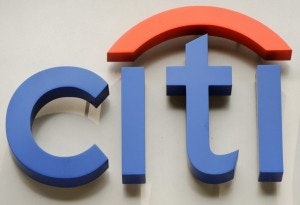
During the boom, when profits are flowing, bank executives are rock stars — geniuses of finance taking command over the plumbing of global economies with skill and precision, soaked in adulation and paid accordingly.
But when the tide goes out, the same excuse pops up over and over again. They throw up their hands, claim ignorance, and say they had no idea what was going on. Not only was someone else doing the dirty work, but at times they claim to have no idea how their businesses even worked.
Take Robert Rubin, former chairman of the executive committee at Citigroup Inc (NYSE:C). Paid $126 million to keep an eye on the bank, Rubin was one of the highest paid bankers in the country during the early 2000s. Yet when Citigroup began choking on pools of toxic CDOs, he admitted sheer ignorance. “Myself, at that point, I had no familiarity at all with CDOs,” he told CNNMoney in 2007.
When Citigroup Inc (NYSE:C) faced devastating losses on a type of derivative called liquidity puts, Rubin shrugged again. “Rubin says he had never heard of liquidity puts until they started harassing Citi last summer,” wrote CNNMoney.
I can’t think of another industry where a company can be sunk by a product its highly paid chairman has never heard of. Imagine Apple nearing bankruptcy after reporting losses on a device Tim Cook had never heard of. It is literally unthinkable.
Next, Tom Maheras, a former Citigroup Inc (NYSE:C)’s executive in charge of what became the bank’s most toxic assets, was asked by a Congressional committee three years ago what led him to take such enormous risks. “Based in part on a careful study from outside consultants …” he explained, “I continued to believe, based upon what I understood from the experts in the business, that the bank’s [CDO] holdings were safe.”
Now, Maheras was paid nearly $100 million in the three years before Citigroup Inc (NYSE:C)’s downfall. You’d think such compensation would require a sense of responsibility. Yet when the tide went out, Maheras’s excuse was effectively that he was just following orders from the experts. (Makes you wonder how much money those experts made.)
It’s nearly five years after the Wall Street crash. So, why I am still talking about this? Because there’s no evidence that the attitude of “Heads I’m paid a fortune, tails it was someone else’s fault” has changed one bit.
Former Barclays CEO Robert Diamond lost his job last summer after the bank was caught in a ring to rig global interest rates known as LIBOR. Asked about the incident, here’s what Diamond told Andrew Ross Sorkin this week:
“Do you want the truth?” he said. “Up until all of this, I didn’t even know the mechanics of how LIBOR was set. If you asked me who at Barclays submitted the rate every day, I wouldn’t be able to tell you. I bet you if you asked any chief executive of any bank on the street, they would give you the same answer.”
Diamond was paid roughly $1 million per month during his tenure at Barclays. And his explanation for the crisis that cost him his job was not only that he didn’t know what was going on with LIBOR, but that he didn’t even know how LIBOR — an underpin of the banking system — worked.
That is fascinating to me.
It is true that no CEO can keep a watch on all its employees, and that there will always be bad apples.
But with banking, we see something much different: Executives proclaiming that they really had no idea how their businesses worked in the first place.
To me, that raises one big question: If they are too complex to manage, why are megabanks so weary of breaking themselves up into simpler and more manageable units?
There’s actually an easy answer to the question. As Sorkin writes, Diamond “still has more money than his grandchildren’s grandchildren will ever need.”
Heads, I win, get rich, and take the credit. Tails, I win, get rich, and proclaim ignorance. What a game!
The article Bankers: Still No Cure for Hypocrisy originally appeared on Fool.com and is written by Morgan Housel.
Fool contributor Morgan Housel has no position in any stocks mentioned. The Motley Fool owns shares of Citigroup Inc (NYSE:C).
Copyright © 1995 – 2013 The Motley Fool, LLC. All rights reserved. The Motley Fool has a disclosure policy.